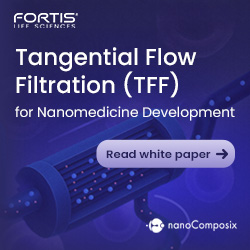Novavax Initiates Pivotal Phase 3 Clinical Trial
Novavax, Inc. recently announced the initiation of a pivotal Phase 3 clinical trial for NanoFlu, its recombinant quadrivalent seasonal influenza vaccine candidate, in adults aged 65 and over. The trial, for which the first participants have been enrolled, will evaluate the immunogenicity and safety of NanoFlu with its proprietary Matrix-M adjuvant, compared to a US-licensed quadrivalent influenza vaccine.
Top-line clinical data from the randomized, observer-blinded, active-controlled trial is expected in the first quarter of 2020 and would support a subsequent US biologics license application (BLA) and licensure of NanoFlu using the US FDA accelerated approval pathway. This pathway enables Novavax to conduct this non-inferiority immunogenicity clinical trial against a licensed quadrivalent comparator, with a commitment to confirm efficacy post-licensure.
“This is an important step forward in Novavax’s efforts to gain approval for NanoFlu, which we believe will better protect older adults from the serious medical complications of influenza through our novel vaccine technology,” said Stanley C. Erck, President and Chief Executive Officer of Novavax. “With current vaccine efficacy at 12% in older adults, NanoFlu may address a major unmet need that represents a $4 billion market globally.”
The trial will enroll approximately 2,650 (1,325 per arm) healthy older adults across 19 US clinical sites. Trial participants will receive either NanoFlu or the comparator, both of which will be formulated with the four influenza strains recommended for the 2019-2020 Northern hemisphere influenza season. Participants will be followed for approximately one year after injection, with primary immunogenicity analyses of the Day 28 sera samples.
The trial’s primary objective is to demonstrate non-inferior immunogenicity as measured by hemagglutination inhibition (HAI) titers of vaccine homologous influenza strains compared to a licensed seasonal vaccine, and to describe its safety profile.
“We believe that NanoFlu represents a significant advance in influenza vaccine development and could provide meaningful advantages in protecting older adults against influenza,” said Gregory Glenn, MD, President of Research and Development of Novavax. “We have shown that NanoFlu, a Matrix-M adjuvanted recombinant nanoparticle, elicits antibodies that neutralize the predicted circulating virsues, historic circulating virsues, and the newly evolved H3N2 viruses. In addition, the induction of robust flu specific effector T cells in older adults further distinguishes NanoFlu from licensed comparators. We expect that the use of accelerated approval pathway will make this needed vaccine available to the public sooner. ”
For more information about the trial, read here on clinicaltrials.gov.
NanoFlu is a recombinant hemagglutinin (HA) protein nanoparticle influenza vaccine produced by Novavax in its SF9 insect cell baculovirus system. NanoFlu uses HA amino acid protein sequences that are the same as the recommended wild-type circulating virus HA sequences. NanoFlu contains Novavax’ patented saponin-based Matrix-M adjuvant, which has demonstrated a potent and well-tolerated effect by stimulating the entry of antigen-presenting cells into the injection site and enhancing antigen presentation in local lymph nodes.
Positive top-line results of a Phase 2 clinical trial of NanoFlu in older adults released in January 2019 showed that NanoFlu induced improved immune responses when compared to the best-selling flu vaccine in the older adult market. All formulations of NanoFlu were well tolerated and elicited vigorous immune responses to the four strains included in the vaccine.
Accelerated approval may be granted for certain biological products that have been studied for their safety and effectiveness in treating serious or life-threatening illnesses and that provide meaningful therapeutic benefit over existing treatments. Such an approval will be based on adequate and well-controlled clinical trials establishing that the biological product has an effect on a surrogate endpoint that is reasonably likely to predict clinical benefit. For seasonal influenza vaccines, the HAI antibody response may be an acceptable surrogate marker of activity that is reasonably likely to predict clinical benefit. To be considered for accelerated approval, a biologics license application for a new seasonal influenza vaccine should include results from one or more well-controlled studies designed to meet immunogenicity endpoints and a commitment to conduct confirmatory post-marketing studies of clinical effectiveness in preventing influenza.
Novavax, Inc. is a late-stage biotechnology company that drives improved health globally through the discovery, development, and commercialization of innovative vaccines to prevent serious infectious diseases. ResVax, its RSV vaccine for infants via maternal immunization, is the only vaccine in a Phase 3 clinical program and is designed to prevent severe lower respiratory tract infection which is the second leading cause of death in children under 1 year of age worldwide. Novavax is also advancing NanoFlu, its quadrivalent influenza nanoparticle vaccine, to address key factors that can lead to the poor effectiveness of currently approved flu vaccines. Novavax is a leading innovator of recombinant vaccines; its proprietary recombinant technology platform combines the power and speed of genetic engineering to efficiently produce a new class of highly immunogenic nanoparticles addressing urgent global health needs. For more information, visit www.novavax.com and connect with us on Twitter and LinkedIn.
Total Page Views: 1582









